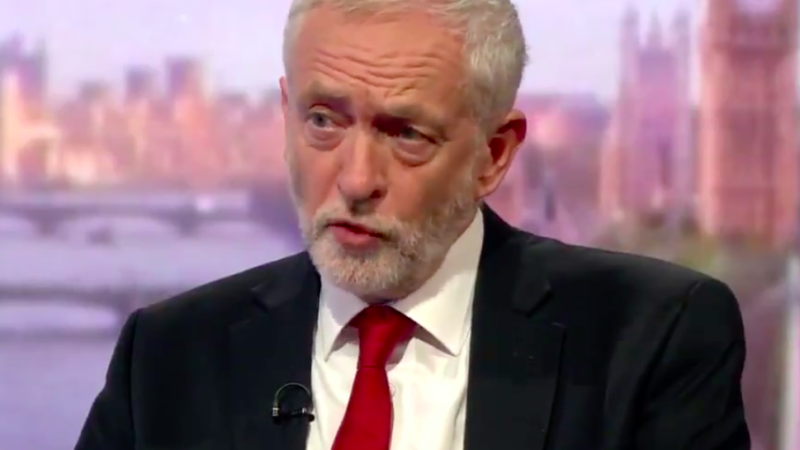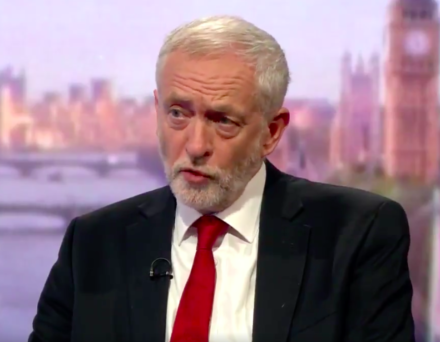

This week Jeremy Corbyn said Philip Hammond, the chancellor, was right to call the Labour party an “existential challenge to our economic model”. In his speech the Labour leader set out an alternative economic vision, along with popular policy proposals, such as public ownership of rail, energy and the Royal Mail, restoring workers’ rights and investment in public services.
Potentially, this is an historic moment. There is not only a clear sense of disillusionment with the political and economic status quo of cuts and privatisation but also a growing feeling that radical change is needed – and a translation of this into tangible political momentum.
I believe that policies put forward by Labour under Corbyn and John McDonnell are popular precisely because they are a decisive break from the past and from the current neo-liberal system that has failed so many while growing the wealth of the richest. The alternative – which I am proud that we at PCS have long-argued for – presents a serious threat to the power of the few who have exploited the system so ruthlessly.
And it is those few who rule Britain and control our institutions, from the civil service and Whitehall to large corporations and the media. They run these in their own interests. We must be in no doubt that they will seek to do everything they can to prevent radical systemic change.
I have no doubt that a future Labour government faces a huge challenge; all the usual arms of the establishment will be brought to bear. We have already heard the dramatic threats of economic pressures including the “flight of capital” and attempts to destabilise the economy. We must be prepared for resistance from the establishment and the appointed heads of the civil service who control the levers of power.
Trade unionists know just how far the proponents of the current system will go when faced with opposition. From the blacklisting and sacking of unionised workers, to the Thatcher government undermining democratically elected trade union officials in my own predecessor union, the scale of the interference is only now becoming clear. At my first meeting with a very senior civil servant in the Cabinet Office, after being elected general secretary, I was shown a huge file with my name on it, and told “they had been doing some background reading on me”.
The civil service must play an important role in combating this concentration of power. Contrary to lurid stories of pen-pushing bureaucracy, the vast majority of civil servants are not hostile to change. Our members have been leading the fight against austerity, cuts and privatisation. Like all public sector workers, civil and public servants have suffered directly as a result of the austerity and cuts programme that has dominated our political landscape for years.
Some 120,000 jobs have been cut from the civil service alone, and the one per cent pay cap has meant PCS members are £3,000 worse off on average in real terms since 2010. Public servants are suffering, yet they are forced to carry out the government’s agenda. PCS members working in job centres have to implement the government’s welfare “reforms” unwillingly. It’s the oldest trick in the book; to foster a culture that pits people against each other in order to deflect blame away from those at the top.
The reality is the government pays its own workers so poorly that 40 per cent of those delivering universal credit are eligible to claim it. Our members as public servants are on the side of the people they serve.
Thirty years ago we had a system that – while in no way perfect – was responsive to people’s needs and those who worked delivering the services. I started work in 1980 at the age of 16 as a clerical officer at the former Department of Health and Social Security and saw how under Thatcher, marketisation was used to destroy the social security system.
Now we are left with a system where universal credit inflicts unimaginable pain and misery on some of the most vulnerable in our society, and those working in job centres and in the delivery of services are themselves among the worst affected by the government’s austerity.
Changing this – from creating an alternative vision for social security based on universality and fairness, to transforming our economy so that it works in the interests of the many – is for the first time in decades, a real possibility. But the alternative we are fighting for presents a serious threat to the establishment. To succeed, it is vital that we recognise the likely scale of resistance to such change, and work to mitigate its impact. Trade unions, and public sector unions in particular, have a vital role in building solidarity in the face of attempts to divide us.
Mark Serwotka is general secretary of PCS.




More from LabourList
‘Council Tax shouldn’t punish those who have the least or those we owe the most’
Two-thirds of Labour members say government has made too many policy U-turns, poll reveals
‘Two states, one future: five steps on the path to peace for Israelis and Palestinians’